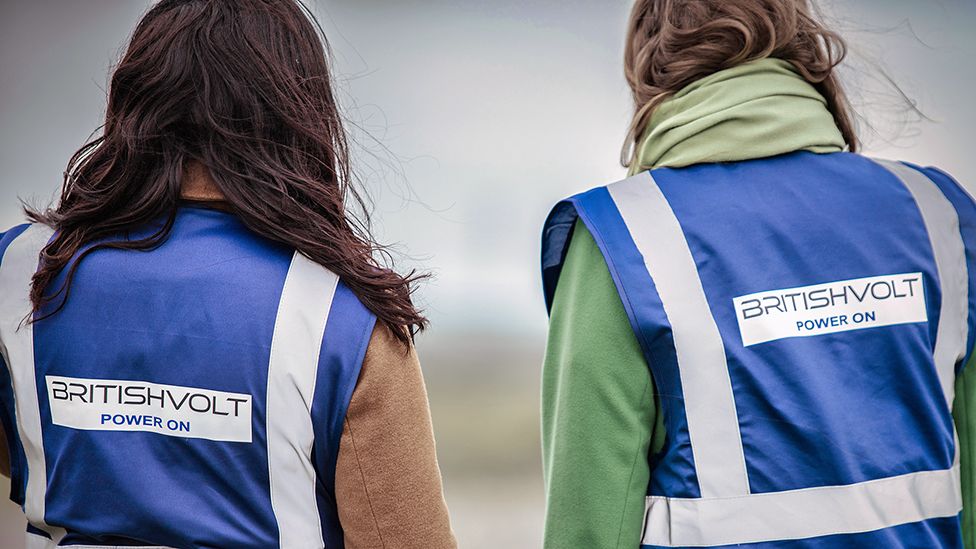
The Australian company that was meant to buy failed battery firm Britishvolt has missed the deadline to pay for the business, casting doubt on the deal.
Filings from administrators EY show that the final instalment of a total payment of £8.57m, which was due on 5 April, is still outstanding.
EY said that the buyer, Recharge Industries, had therefore defaulted on its agreement to buy the business.
However, Recharge Industries said: “We dispute we are in default.”
Britishvolt had planned to build a massive £4bn car battery factory in the north-east of England, but went into administration in January after running out of money.
Great hopes had been pinned on the site, with the promised creation of thousands of jobs and the technology and batteries needed to answer the UK’s electric car needs.
Its collapse – which came despite support from politicians including former Prime Minister Boris Johnson – was blamed on a lack of battery experience, proven technology, customers and cash.
Recharge Industries, which agreed to buy the firm out of administration in February, shares similarities with Britishvolt.
The Australian firm, which is ultimately owned by a New York-based investment fund called Scale Facilitation, is a start-up with little battery manufacturing experience.
It faced issues in June, when Scale Facilitation’s Australian offices were raided by police over alleged tax fraud.
At the time, sources close to the owner, entrepreneur David Collard, said the raid was due to a misunderstanding of the interaction between US and Australian tax filings and that all parties were co-operating.
The raid cast doubt, however, over the final payment for the Northumberland Britishvolt site, which had been extended long beyond the original deadline of 31 March.
Image source, Britishvolt
Britishvolt’s proposed gigafactory in north-east England
“The sale to the buyer had not completed as the final amount of deferred consideration was due to be paid on 5 April 2023,” the report from EY to creditors said last week.
It added: “As noted in the proposals, the buyer purchased the company’s business and assets for £8.57m.
“This amount was payable in a number of instalments. The final instalment remains unpaid and overdue. As a result, the buyer is in default of the business sale agreement.”
But on Monday, a spokeswoman for Recharge Investments told the BBC that the timing of the final instalment to be paid to EY depended on a “funding facility, which when closed will also cover the cost of the land acquisition” and provide extra cash for the project.
She added that it expects to close the deal in August.
Recharge’s plan for the Britishvolt site was to initially develop battery storage technology, rather than batteries for electric vehicles.
The report from EY showed that when the firm collapsed, causing the loss of about 200 jobs, Britishvolt likely owed between £130m and £160m to its creditors.
The biggest debt, of about £26.6m, is to DC Energy, a firm which was meant to supply around €100m (£86m) worth of manufacturing gear to the British start-up in its bid to build technology for electric cars.
The business owes some £3m to the government, mostly in income tax and VAT, while employees are also owed just under £280,000.
It is not yet clear how much might be paid back to those owed money by the failed start-up.
The UK currently only has one Chinese-owned battery plant, which is next to the Nissan factory in Sunderland.








